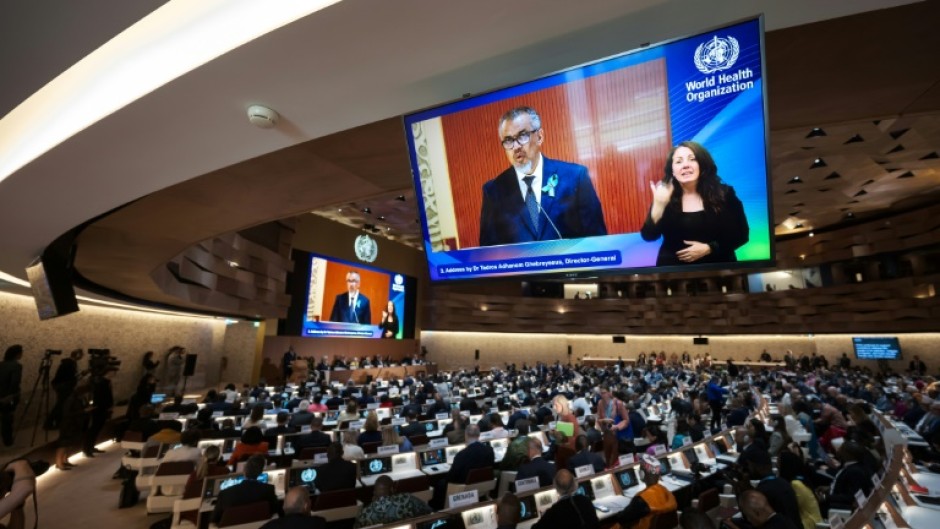GENEVA - The World Health Organization tried to stabilise its finances at its annual assembly, which ended on Tuesday, but still remains well short of reaching its already reduced target.
Hit by the withdrawal of its biggest donor, the United States, the WHO trimmed its already smaller 2026-2027 budget from $5.3-billion to $4.2-billion.
The UN health agency's programme budget for 2024-2025 was $6.8-billion.
The slimmer budget plan was approved during the World Health Assembly, which serves as the WHO's decision-making body.
But a funding gap of some $1.7-billion remains.
At this year's assembly, countries approved another 20 percent increase in membership fees, which should represent an additional $90-million in revenue per year.
They also endorsed the WHO's 2026-2027 budget of $4.2-billion.
"Your approval of the next increase in assessed contributions was a strong vote of confidence in your WHO at this critical time," the organisation's chief Tedros Adhanom Ghebreyesus said Tuesday in closing the assembly.
At a pledging event last week, donors put in an additional $210-million for the 2025-2028 investment round, supporting the WHO's base budget.
That included $80-million from Switzerland, $57-million from the Novo Nordisk Foundation, $13.5-million from Sweden and $6-million from Qatar.
"In a challenging climate for global health, these funds will help us to preserve and extend our life-saving work," said Tedros.
Upon returning to office in January, US President Donald Trump started the one-year process for leaving the WHO, and had frozen virtually all US foreign aid.
The United States was traditionally the WHO's largest donor. Washington's departure, and its refusal to pay its membership fees for 2024 and 2025, has left the WHO reeling financially.
Washington did not attend the World Health Assembly.
However, US Health Secretary Robert F. Kennedy Jr. sent a video message in which he branded the organisation as bloated and moribund, and urged other countries to "consider joining us" in creating new institutions instead.
Kennedy said the UN agency was under undue influence from China, gender ideology and the pharmaceutical industry.

